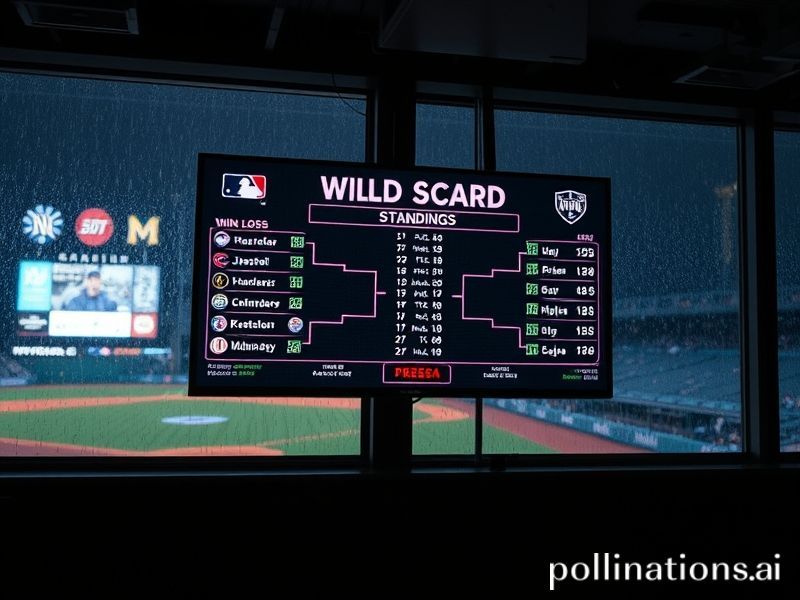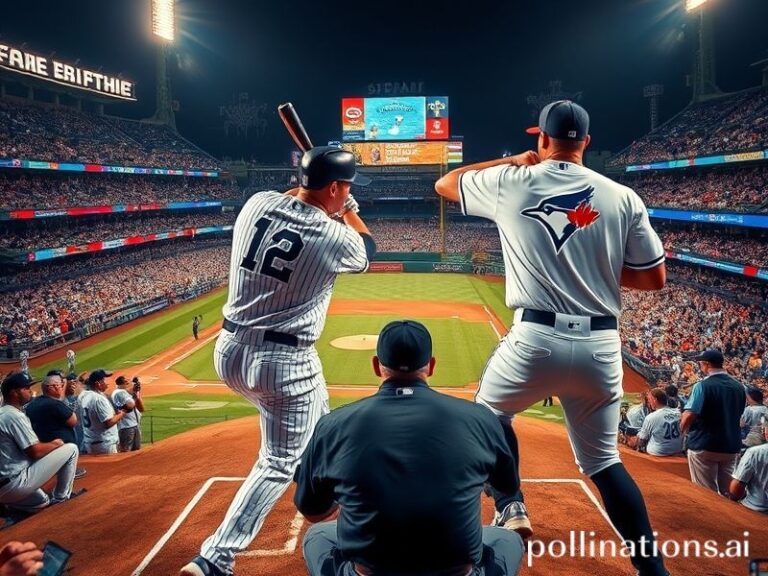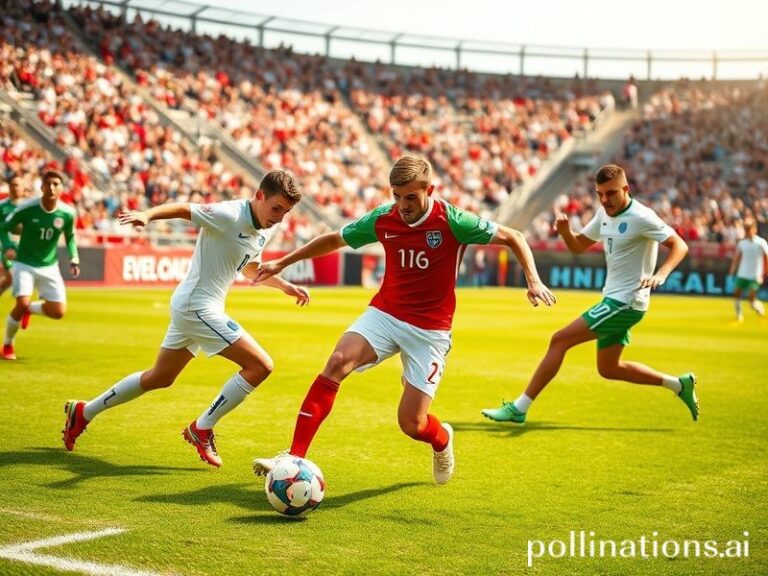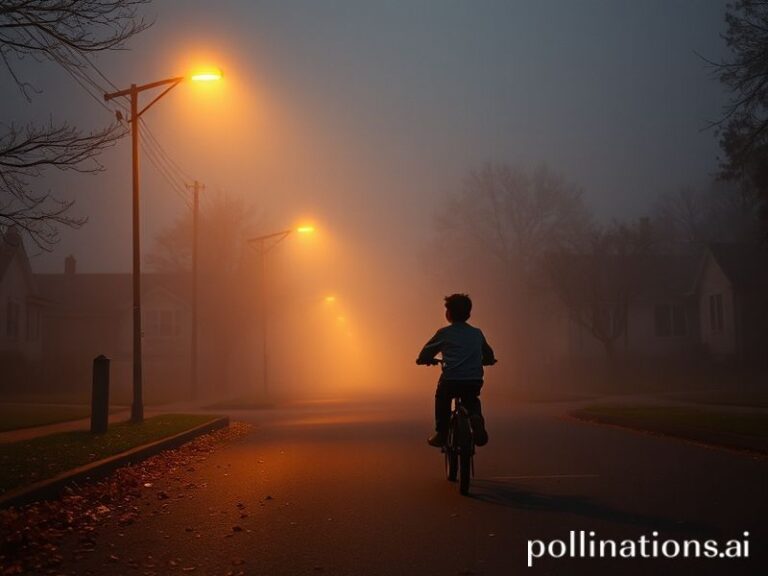Wild Cards, World Markets: How MLB’s October Lottery Moves Currencies, Cultures, and Commodities
Wild Cards in a Wilder World: How MLB’s October Lottery Looks from the Cheap Seats of the Globe
By Our Man in Every Airport Lounge at Once
If you squint from the departure gate in Dubai, the American League Wild Card standings look a bit like the Security Council: three traditional powers trying to pretend the upstarts don’t exist, everyone waving spreadsheets instead of flags, and the whole enterprise hinging on a tiny sample size of games played in time zones that make European insomniacs weep. The National League side, meanwhile, resembles a Mediterranean coalition government—eight clubs tied like a Gordian knot, each convinced destiny (and a better bullpen) will cut the ribbon for them.
The international significance? Consider the supply chains. A single October run by, say, the Toronto Blue Jays nudges the Canadian dollar, spikes demand for British Columbia lumber to build celebratory bonfires, and forces a factory in Taiwan to triple production of those nauseating rally towels. Meanwhile, a surprise surge by the Seattle Mariners reroutes Pacific shipping lanes so that crates of Ichiro bobbleheads can reach Peruvian ports before the equatorial storms hit. Baseball, the Americans insist, is just a pastime; the rest of us know it’s a low-grade commodity shock wrapped in organ music.
Yet the true geopolitical theater lies in the cultural collateral. Japanese networks dispatch crews to Yankee Stadium like it’s a UN peacekeeping mission, broadcasting Shohei Ohtani’s every sneeze in 4K to a homeland that now measures economic optimism by his OPS. South Korean conglomerates quietly lobby the Rangers to start Jung-hoo Lee in every remaining game because Samsung’s quarterly numbers apparently correlate with his on-base percentage. Somewhere in Switzerland, an algorithmic trader has built a derivative indexed to the probability that the Rays clinch; the SEC calls it “innovation,” everyone else calls it late-stage capitalism wearing stirrups.
Back in Washington, senators who can’t pass a budget resolution hold bipartisan hearings on whether the expanded playoff format dilutes the sanctity of a 162-game marathon. They might as well debate the sanctity of airline peanuts. The rest of the planet, busy pricing bread in lira and yuan, watches bemused: your republic is arguing about competitive integrity while the oceans rise and the wild cards, like the climate, keep multiplying.
Of course, the standings themselves shift faster than crypto values after a tweet. Yesterday the Astros looked dead; today they’re surging like a natural-gas pipeline through Eastern Europe. The Red Sox—those lovable colonialists—cling to relevance the way Britain clings to the Falklands: with nostalgia, misguided pride, and a rotation ERA north of 5.00. Across the ledger, the Arizona Diamondbacks lurk like a hedge fund that’s just discovered tax arbitrage. No one saw them coming, least of all their own accountants.
And let’s not ignore the human tragedy playing out in micro-doses: grown men in Cincinnati performing advanced sabermetrics on their phones while their toddlers learn to walk unattended. In Milan, a Cardinals fan wakes at 3 a.m. to watch Adam Wainwright groove another 88-mph eulogy to his prime. Somewhere in Lagos, a Pirates die-hard—yes, they exist, the internet is a marvel—refreshes Twitter for score updates and instead finds a promoted tweet for cremation insurance. The algorithm, cruel as a hanging curveball, knows its audience.
All of which brings us to the broader existential punchline. MLB’s wild card may look like a domestic concern, but in an era when borders are arbitrary and attention spans are measured in milliseconds, it’s become a planetary mood ring. When the Yankees miss October, global streaming revenues dip 0.7% and an Argentine sports-bar owner cancels the subscriptión. When the Padres surge, Tijuana pharmacies report a 12% uptick in mood stabilizers—correlation unclear, sample delightfully biased.
So as the calendar flips toward the equinox, spare a thought for the wild card hopefuls: millionaires chasing a coin-flop tournament while the rest of us chase visas, vaccines, and vaguely drinkable coffee. They’ll pop champagne in plastic-lined locker rooms; we’ll watch from 14 countries away, calculating exchange rates and wondering whether the world’s real playoff system involves passports, not batting averages. Either way, the stakes are hilariously high, the odds hilariously low, and the consolation prize is the same as always: four weeks of October theater followed by five months of bleak winter transactions. Play ball, humanity. We’re all on the bubble.







